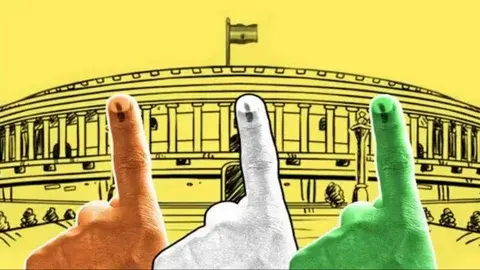You’ve probably seen it in the headlines—election contest news is everywhere. But what does it mean when a candidate contests an election? And why should you care? Whether it’s a local mayoral race or a national election, these contests can shape the future of a community, a state, or even an entire country.
Today, let’s dig into what’s happening with elections , how they affect us, and what you need to know to stay informed.
What Is an Election Contest?
An election happens when the outcome of an election is legally challenged. It’s not just about losing. It’s about a candidate believing something was wrong in the process—maybe the votes weren’t counted properly, there was voter fraud, or the rules were broken somewhere along the way.
Imagine you’re running for office, and the race is incredibly tight. Every vote counts. If you lose by a small margin, and there’s even a hint that something fishy happened, you’d want answers, right? That’s where election contests come into play.
Why Are We Seeing More Election Contests in the News?
You might be thinking, “Is it just me, or are we hearing about election contest news more and more these days?”
It’s not just you. Election contests are becoming more common, and here’s why:
- Tighter races: Elections, especially at the local and state levels, are often decided by razor-thin margins.
- Heightened political tension: Politics feels more divisive than ever. When tensions are high, so is the likelihood of a contest.
- Technology: With new voting technology comes new potential for mistakes. Electronic voting machines, mail-in ballots—these all add layers to the process.
These factors create the perfect storm for more frequent challenges to election results.
How Does an Election Contest Work?
Let’s break it down. When someone contests an election, they have to go through a legal process, which varies depending on the country or state.
- Filing the challenge: The candidate (or sometimes a voter) files a formal complaint, explaining why they think the election result should be reviewed.
- Gathering evidence: This could involve scrutinising ballots, reviewing voter registration records, or investigating allegations of fraud.
- Court hearings: The case might end up in court, where a judge will weigh the evidence and decide whether to throw out the results, hold a new election, or uphold the original outcome.
- Final decision: If the judge rules in favour of the challenge, it could mean a change in leadership, a new election, or adjustments to the current results.
This process can take weeks or even months, and in the meantime, uncertainty reigns.
The Impact of Election
So, why should you care about election contests? Well, they matter for a few key reasons:
- They influence who holds power: Election can change the winner, which means different policies and leadership.
- They affect trust in the system: The more we hear about contested elections, the more we question the integrity of our voting process. This can lead to scepticism and disengagement from voters.
- They can set legal precedents: Each contested election can impact future races, setting new rules or guidelines for how elections are conducted.
Famous Election Contests in Recent History
Let’s talk examples because nothing explains it better than real-life stories.
- The 2000 U.S. Presidential Election: The most famous modern election contest is probably the Bush vs. Gore election. Remember the “hanging chads” in Florida? It was an intense legal battle that ended up in the Supreme Court, ultimately giving George W. Bush the presidency.
- 2020 U.S. Presidential Election: After the 2020 election, there were numerous election contests and lawsuits filed, especially in battleground states like Pennsylvania and Georgia. The courts dismissed most of these challenges, but they dominated the news cycle for weeks.
Why the Legal System Is Key in Election Contests
In every election contest, the legal system is at the heart of deciding the outcome. It’s easy to forget that elections aren’t just about votes—they’re also about laws. Every country has specific rules governing how elections are run, and when those rules are bent or broken, the courts step in.
Election contest news shines a light on these legal processes. If you’re following the news and wondering why certain cases are taking so long, it’s because legal battles are complex. The courts are tasked with ensuring that every vote is fair, and that can take time.
FAQs About Election Contests
Q: How common are election contests?
A: Election contests are rare but becoming more frequent, especially in close races or high-stakes elections.
Q: What happens if a candidate wins an election contest?
A: If the court rules in favour of the contest, it could mean a recount, a new election, or even declaring a new winner.
Q: Do election contests delay the political process?
A: Yes, they can. While the courts work through the case, there’s often uncertainty about who will take office.
Q: Are election contests only about fraud?
A: No. Candidates can contest elections for many reasons, including errors in vote counting, improper ballot handling, or issues with voter registration.
Wrapping It Up
Whether you’re a political junkie or just trying to make sense of the news, election contests matter. They shape the future of leadership and keep our voting process in check. Next time you hear about election contest news, you’ll know exactly what’s at stake.
And remember, staying informed isn’t just about watching the news. It’s about understanding how these contests work, why they happen, and how they impact us all.




